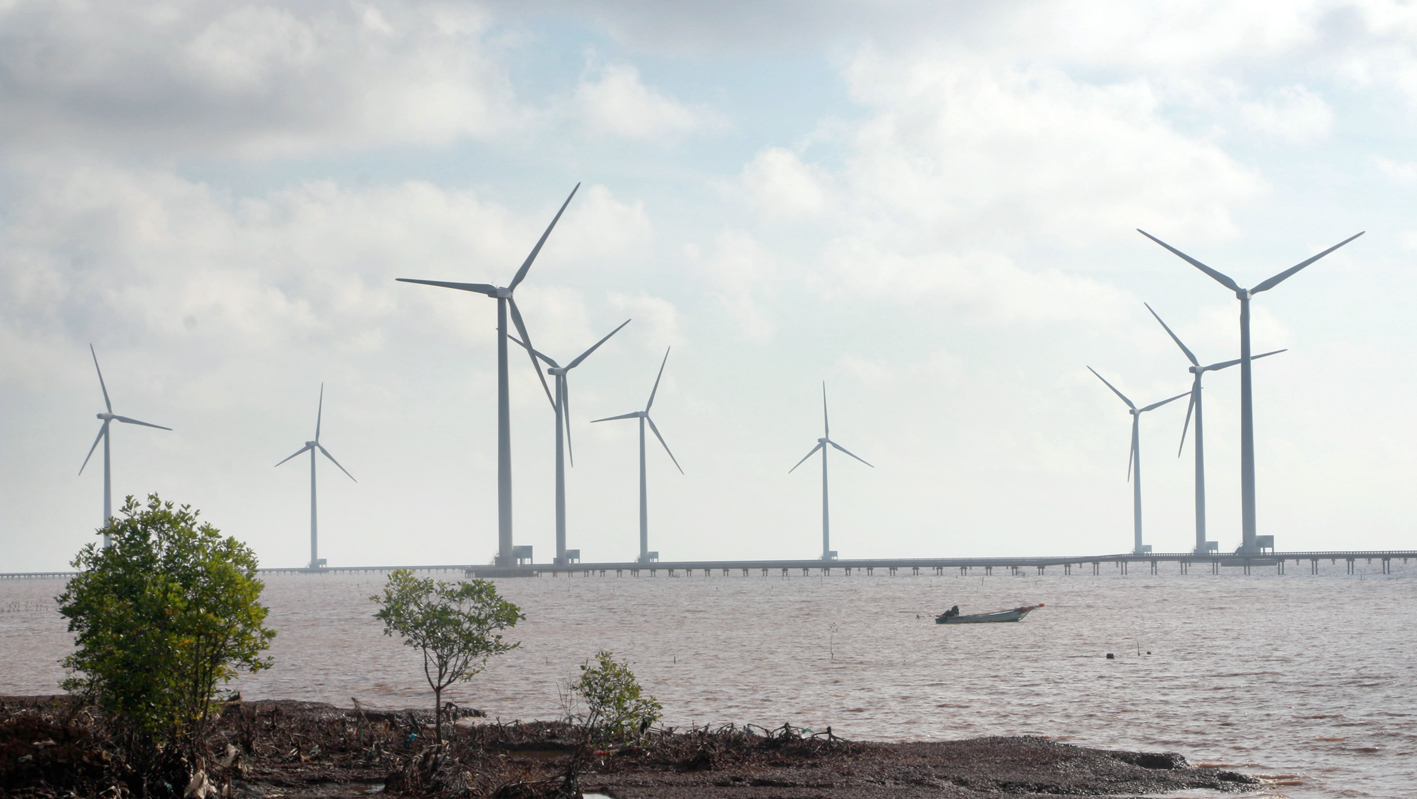New preferential policies have encouraged both local and international firms to invest in renewable energy, according to authorities.

New preferential policies have encouraged both local and international firms to invest in renewable energy, according to authorities.
Despite the Government’s determination to develop wind and solar power as well as biomass electricity, many renewable energy projects have lagged behind schedule due to inefficient planning and lack of vision.
Although wind power projects in Binh Thuan Province, Ninh Thuan Province and several provinces of the Mekong Delta, including Ca Mau and Bac Lieu, for example, have received significant amounts of money, they have been abandoned for over 10 years.
However, with efficient policies from authorities, some of these projects have officially restarted, and clean energy has actually been generated.
The Prime Minster has recently approved 15 wind power projects in Ninh Thuan Province, 12 of which have total registered capital of about VND27.5 trillion.
About 25 solar power projects have been added to the existing master plan, 18 of which have total registered capital of more than VND27.8 trillion.
From now until 2030, Ninh Thuan Province is expected to attract further investment for wind power projects, with a total capacity of 1,429MW, and solar power projects, with total power of 3,912MW.
To encourage more investment, Ninh Thuan Province has asked the PM and Ministry of Industry and Trade to instruct Electricity of Viet Nam (EVN) to emphasise the development of electricity transmission systems.
When construction of all renewable energy projects in the province are completed, these transmission systems will be crucially needed.
At the same time, EVN should also consider adjusting electricity prices, the province said.
According to experts, a series of preferential policies on credit, import tax, export tax and corporate income tax have encouraged the development of renewable energy.
A government decision on solar power projects in Viet Nam, for example, calls for electricity buyers to purchase all the electricity generated from grid-connected projects at the price of VND2,086 per kWh (excluding VAT).
The electricity price is adjusted according to the exchange rate between the Vietnamese dong and the US dollar.
After the Government increased the electricity price to US$0,93 per kWh last June, about nine projects on renewable energy generation and distribution were registered by foreign firms each month, according to a report on renewable energy in Viet Nam in 2018 by StoxPlus, a financial and economic information service provider in Viet Nam.
Both local and international firms are interested in investing in the renewable energy sector, which is expected to grow by 23.2 per cent between 2020 and 2030.
As of now, Viet Nam has a total of 245 renewable energy projects which have been deployed in different stages.
If all projects are actually carried out, the amount of clean electricity generated should reach 23.2GW, which is more than 10 times the target set for total renewable electricity capacity by 2020, according to the national VII power plan.
However, only 19 per cent of the projects are in the construction stage, and only eight per cent actually generate electricity, while the rest are still in the preparation phase.
Vu Thi My Dung, an expert at StoxPlus, said that in addition to more preferential policies and incentives from now until June 2019, a domestic-foreign joint co-operation model should be considered.
“While domestic firms lack sufficient technology, experience and financial capacity, international partners can complement this,” she said.
“For the best management, foreign firms can choose to increase their investment in each phase of the project until they hold 100 per cent of the joint venture capital,” she added. — VNS





